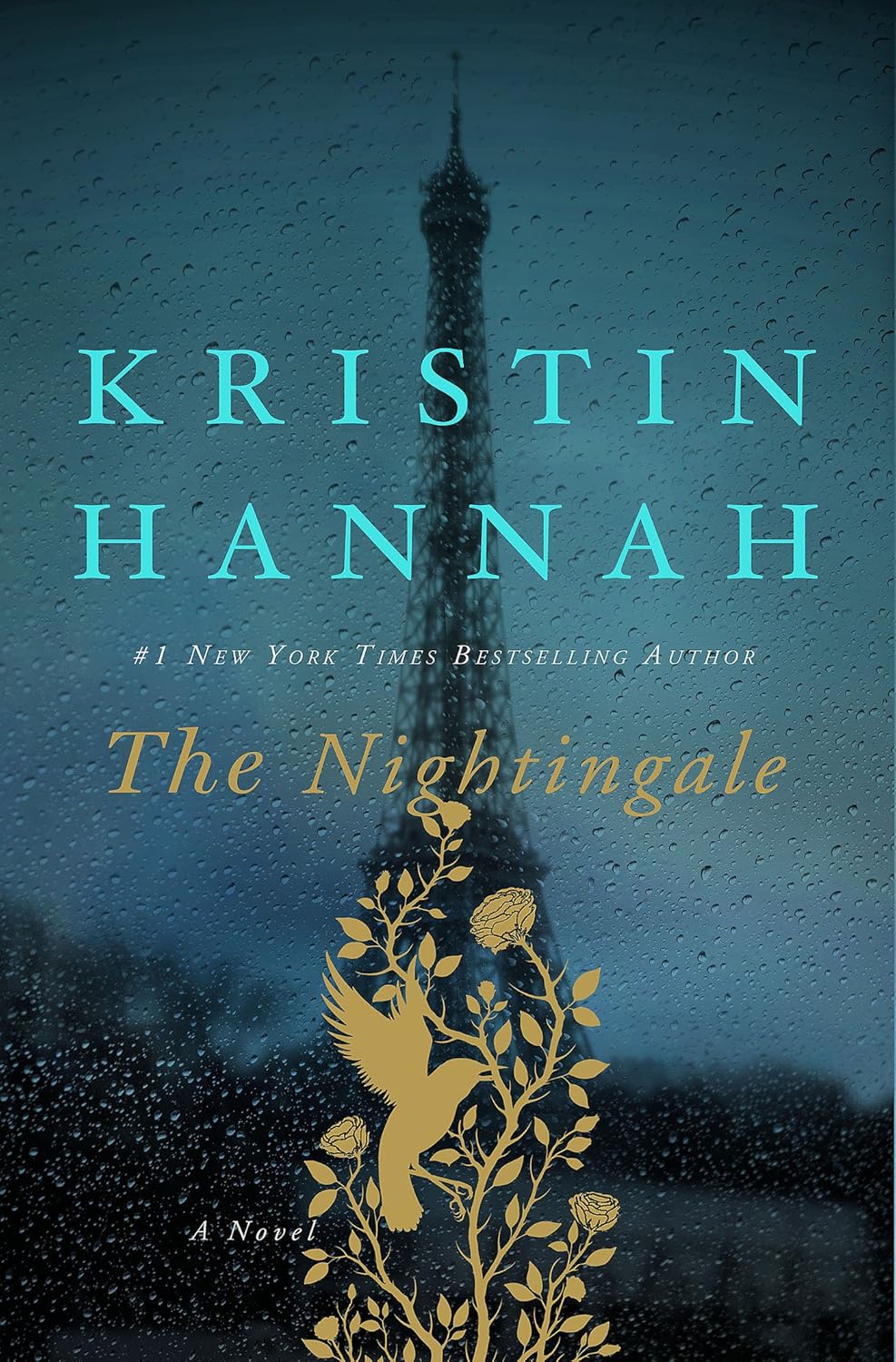Kristin Hannah opens her newest novel, The Nightingale, with this sentence that acts as the driving theme in her WWII portrait of women during war. Hannah's main characters are sisters with a fractured past. Their bond is tenuous before the war, and nearly breaks entirely once the Nazi's invade France. The elder sister is Vianne Mauriac, a devoted mother and wife who fights her war at home in Carriveau, where a Nazi has billeted at her home while her husband is in a work camp in Germany. Isabelle Rossignol is the impetuous younger sister whose anger about the war drives her toward the French Resistance.
The Nightingale is by no means literary fiction. When I say that, I mean that there is no prose so beautiful that it resonates with your soul, however, this is an excellent story with an emotionally powerful narrative. Hannah's body of work up until this point has dealt with interpersonal relationships and emotional "chic-lit." The Nightingale has taken Hannah's storytelling to a different level. The writer even admitted in an interview with Goodreads that this story was the most difficult for her to write, but it was a story that would not let her rest.
Isabelle's character was inspired by an actual person who helped allied airmen who landed in enemy occupied territory. Hannah did an excellent job of bringing this piece of historical fiction to life with the creation of Isabelle and her complex upbringing. Isabelle's rebellious nature has been a consistent bane of contention with her father, Julien, who ships her off to boarding school after boarding school because he is a broken man incapable of raising his daughter. Julien was a poet, bookshop owner, and intellect before the Great War (WWI). Upon his return, Isabelle, Vianne and their Maman knew that he was a changed man. After the death of his wife, Julien sends his daughters away to let strangers raise them. This background is important in understanding how both women react to situations in their life throughout the story.
Vianne is significantly older than Isabelle, and she married young; leaving Isabelle behind in every emotionally devastating way possible. I thought this was an interesting dynamic to establish between these sisters, and Isabelle's anger is as much justified as it is an emotional byproduct of her youth. Vianne is seemingly everything her sister is not: meek, naive, and submissive. She clings to false hope even when she finds out her husband has been sent to a German work camp after being captured at the front; even when Nazi's invade her home town; even when a Nazi Captain moves into her house.
Yet, the fight that Vianne is engaged in is one of survival for not only herself, but her daughter, Sophie. She is representative of the women who were left behind in war. Women must carry on; they must make the most of a terrible situation and survive. Vianne lives the grueling reality of food shortages even after standing in lines all day with ration cards. She is our witness to the horrific winters in which she has to resort to burning the only furniture left in her home after the Nazi's confiscate everything of value. Vianne watches her daughter linger on the brink of starvation while the threat of violence in her town and in her very home begins to mount. For as weak as she thinks herself to be in comparison to Isabelle, she is a survivor and a fierce mother.
I was intrigued by Vianne's relationship with Captain Beck. There was an interesting tension and fondness between these two individuals brought together under the worst kind of conditions. I kept waiting for something to happen, and when it did - I was very surprised. Vianne's character takes an interesting departure from her demure existence and surprised me with what she was capable of handling for the rest of the story.
Isabelle was an exciting character to follow, because she was willing to risk her life for a Free France. She distributes "terrorist" propaganda to Carriveau citizens keeping them abreast of the real news of the war; she moves to Paris to become a courier for the resistance; and she eventually becomes The Nightingale. I don't want to give too much away, but I can guarantee an interesting and informational read from both the women's perspectives.
The story is framed by one of the older sisters looking back on her life. Hannah admitted that she didn't know which sister the old woman was until the end, and I think it's important that the reader experience something similar in the reading, so I won't give it away. I thought, in terms of writing, these were the weaker sections of the narrative. It's obvious that the writer is writing around the telling details.
There were a few redundancies in the prose; repeated phrases that I caught because I read the book in a short time span. It didn't detract from my enjoyment of the story, but I picked up on them as well as the hammered home messages of love being the triumphant emotion above hate. It became too poignant and overly sentimental in some places where some literary nuance would have benefit the narrative.
If you like historical fiction from this era, then you will probably enjoy this book. The writing is good, but it's not the kind of poetic prose found in Anthony Doerr's All The Light We Cannot See. The thing that will grab you are these women and how well realized they are as characters. They come alive in this historical setting and they endure and fight their own war - the forgotten war of women.

Listening to this on audiobook now, I'm slightly over halfway through and I can't wait to finish!
ReplyDelete